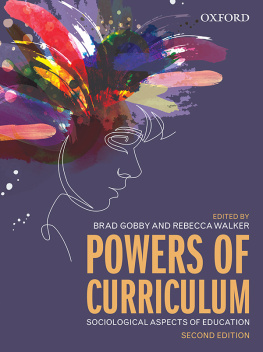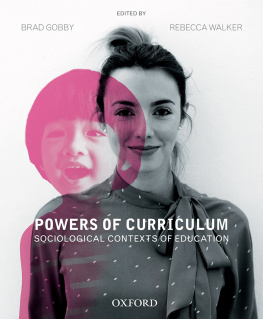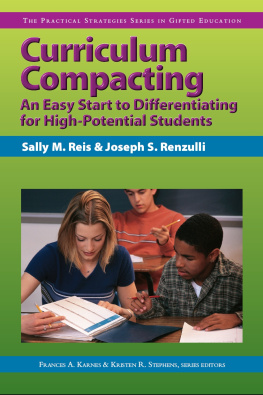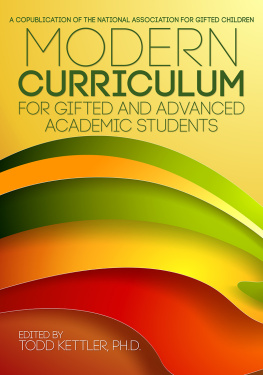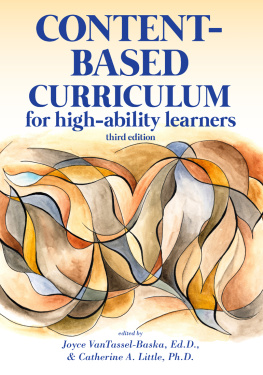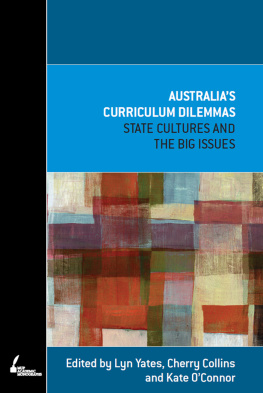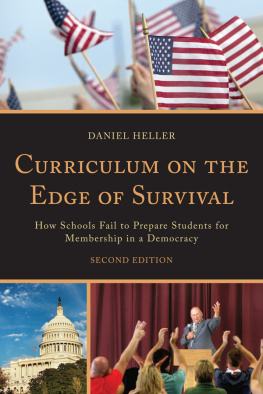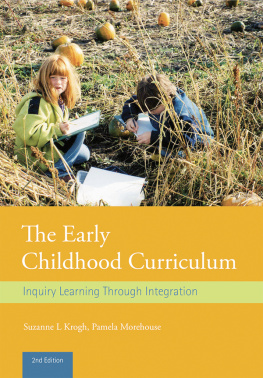Contents



Oxford University Press is a department of the University of Oxford.
It furthers the Universitys objective of excellence in research, scholarship, and education by publishing worldwide. Oxford is a registered trademark of Oxford University Press in the UK and in certain other countries.
Published in Australia by
Oxford University Press
Level 8, 737 Bourke Street, Docklands, Victoria 3008, Australia.
Brad Gobby and Rebecca Walker 2022
The moral rights of the authors have been asserted
First published 2017
Second edition published 2022
All rights reserved. No part of this publication may be reproduced, stored in a retrieval system, or transmitted, in any form or by any means, without the prior permission in writing of Oxford University Press, or as expressly permitted by law, by licence, or under terms agreed with the reprographics rights organisation. Enquiries concerning reproduction outside the scope of the above should be sent to the Rights Department, Oxford University Press, at the address above.
You must not circulate this work in any other form and you must impose this same condition on any acquirer.

ISBN 9780190333843

Reproduction and communication for educational purposes
The Australian Copyright Act 1968 (the Act) allows educational institutions that are covered by remuneration arrangements with Copyright Agency to reproduce and communicate certain material for educational purposes.
For more information, see copyright.com.au.
Edited by Adrienne de Kretser, Righting Writing
Typeset by Newgen KnowledgeWorks Pvt. Ltd., Chennai, India
Indexed by Puddingburn Publishing Services Pty. Ltd.
Printed in China by Golden Cup Printing Co., Ltd.
Disclaimer
Aboriginal and Torres Strait Islander peoples are advised that this publication may include images or names of people now deceased.
Links to third party websites are provided by Oxford in good faith and for information only.
Oxford disclaims any responsibility for the materials contained in any third party website referenced in this work.
CONTENTS
Brad Gobby
Brad Gobby and Saul Karnovsky
Brad Gobby and Zsuzsa Millei
Christina Gowlett and Richard Niesche
Stefania Giamminuti
Glenn C. Savage
Joel Windle
Jane Pearce
Sophie Rudolph and Lilly Brown
Amanda Keddie
Zsuzsa Millei and Eva Bendix Petersen
Kelli McGraw
Barry Down
Glenda McGregor and Martin Mills
Jane Merewether
Tiffani Apps and Rebecca Walker
Rebecca Walker and Brad Gobby
Rebecca Walker and Madeleine Dobson
PREFACE
To meet the needs of learners in an increasingly complex and demanding world, educators must be equipped with knowledge not just of the methods of teaching and planning curriculum, but also of how social, cultural and political powers shape education, curriculum and the lives of learners and educators. This book explores this bigger picture of education and curriculum, and how it intersects with issues surrounding the content, planning, enactment and experience of curriculum. Our aim is to equip educators with ideas, concepts, theories and perspectives to transform education so they can make a positive difference to the lives of children and young people in the early childhood, primary and secondary phases of education.
We do this not by offering models of what to think and what to do, because models and checklists of methods and strategies cannot adequately respond to the specific, complex and dynamic circumstances of education and learning. Our approach is to treat educators and pre-service educators as intellectual workers rather than technicians delivering somebody elses plans and ideas. The ideas, concepts, theories and perspectives of this book help readers observe, decipher and interpret education and the wider world, which might mean thinking against the grain of established ideas and practices. Our goal is to support readers to rise to the challenge of educating todays children and young people in systems of education that need transforming.
The text is organised into three Parts: Introducing Curriculum; Unpacking Curriculum Issues; and Creating and Enacting Curriculum. Part I (Chapters 15) introduces the notion of curriculum and how we should understand it in relation to society, culture, politics, the lives of learners and the role of formal education and educators. Part II (Chapters 612) introduces important issues when thinking about formal education and the creation and enactment of curriculum. Part III (Chapters 1318) explores the practical dimension to your reading and learning about curriculum. The authors of the chapters encourage you to reflect on your opinions and experiences, and to explore ideas and concepts to open education to new thoughts and practices.
In this second edition, we have updated the research used in the chapters, revised theory in action cases and activities, and included a chapter on the use of educational technologies, which raises issues around child rights and child agency. The previous chapter on learner diversity has been added to Part I and expanded. In doing so, we recognise that how educators think about learners is a key driver of their practices, and therefore we need to reflect on our assumptions about learners, especially given the growth of learner diversities. Authors have also responded to recent world events and educational developments, with references to the climate crisis, the COVID-19 pandemic and the datafication of education.
As with the previous edition, this book uses several features to support your comprehension of and engagement with the ideas being explored. These features include:
Ask yourself
Often, the best place to begin your learning is with your own experiences. The Ask yourself questions encourage you to use your knowledge, thoughts and experiences to reflect on your reading. You are encouraged to think about how these shape your views of education and the world, and how education, society, culture and politics shape your views and experiences.
Theory in action
Thoughts are tied to our practice, or what we say and do, and how we organise activities such as teaching and learning. The Theory in action feature encourages you to think about how the ideas you are reading about surface in peoples experiences and can be applied to educational contexts. Some of these require reading and investigating documents, and others are descriptions of experiences, scenarios or cases. The Theory in action questions encourage you to use the concepts, ideas and perspectives explored in the book.
Questions and activities
The questions and activities posed at the end of each chapter encourage you to apply, explore and extend the key ideas, concepts and practices presented. There is a range of different activities, which include further reading, discussing with peers, and reflection.

